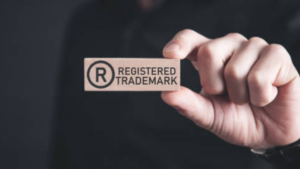 The UDRP does not constitute an alternative to an unsuccessful buyout attempt
The UDRP does not constitute an alternative to an unsuccessful buyout attempt
The UDRP stands for the Uniform Domain-Name Dispute-Resolution Policy and is a legal process that requires both parties to present evidence and argue their case in an unbiased setting. In the case of SpaceX v. StarGroup, the UDRP was used to decide if a domain name infringed on another’s trademark. The UDRP found that the domain name was not in violation of a trademark. Instead, it was a legitimate use of the name to describe the company’s products and services. This case highlights the fact that the UDRP is a process designed to fairly and effectively resolve domain name disputes. It is not intended to be used for anything else. The complainant “SpaceX” is an American company providing aerospace manufacturing, transportation, and communications services in many countries. Its oldest trademark right on “STARLINK” comes from a European Union trademark registered on May 15, 2018. Since 2020, it has used the trademark “STARLINK” for communication services, notably broadband internet services by satellite. The complainant also owns the domain name <starlink.com>. The complainant invokes several arguments. Namely that the domain name incorporates its “STARLINK” trademark and that the defendant’s goal is to usurp the complainant’s identity via the domain name, a major argument without proof. Between 2017 and 2018, the complainant offered to buy the “STARLINK” trademark from the defendant, which was refused. Furthermore, the complainant argues that they have tried for several years to stop the defendant’s infringement of its “STARLINK” trademark. Indeed, in view of the facts, the company StarGroup seems to be the first to have commercially exploited the term “STARLINK” or at least to have secured this sign as a trademark.
This “STARLINK” trademark is at the heart of the dispute since the contested domain name is <starlinkmx.com>, with the mark registered on June 8, 2018, by StarGroup. StarGroup, the defendant, operates in the entertainment and telecommunications sector. This company, located in Mexico, owns a family of trademarks around the term “star”: STAR TV, STAR GO, STAR LINE, and STAR GROUP. The company has also filed two “STARLINK” trademarks in Mexico. One of which, registered in November 2015, was canceled following an action brought by the complainant. The second, registered in January 2016 for online entertainment services in class 41, is still in force. The defendant’s arguments shed more light on the situation. He alleges that his “STARLINK” trademark continues with the numerous StarGroup trademarks: STAR GROUP, STAR LINE, and STAR GO. He specifies that his “STARLINK” trademarks are prior to those of the complainant and that the domain name in question is operated in connection with his activity. Finally, the defendant explains that during the action in Mexico, his “STARLINK” trademark was canceled, not because of the complainant’s prior rights, but because the list of services was not specific enough. Given the context, it seems that this was more of a “counter-attack” by the complainant against a competitor who refused to sell its trademark.
In a decision of September 21, 2022, the UDRP complaint filed by the company Space Exploration Technologies against the company StarGroup was logically rejected given the context of the case. On the one hand, the complainant’s trademarks are registered in the European Union. It does not invoke any Mexican trademarks in its favor. In addition, the complainant provides no evidence that the defendant would seek to deceive Internet users by passing itself off as the complainant. The decision does not mention the complainant’s actions to defend its rights against the defendant (apart from the Mexico circumstance). Finally, why buy the defendant’s trademark if the latter acted fraudulently on the complainant’s rights?
In support of their decision, they note that on the day of registration of the disputed domain name, the Respondent could not have known that the Complainant intended to register or use the trademark “STARLINK”, in Mexico or elsewhere. In our view, this is not entirely correct, since the Respondent had been approached by the Complainant – first anonymously in 2017 and then revealed in May 2018 – to propose, among other things, the purchase of the “STARLINK” trademark. However, this does not mean the Respondent targeted the Complainant by preserving the domain name in question, since this name merely reflects its trademark (which the experts note). Finally, experts note that StarGroup has registered a separate domain name for each of its “STAR” marks. The Respondent registered its “STARLINK” mark in November 2015, proving its intention to commercially exploit this mark, well before the Complainant. Consequently, it is impossible to conclude that the defendant acted in bad faith. Finally, as of 2019, the disputed domain name pointed to a website promoting the sale of satellite data packages, i.e. a year before the public launch of the Complainant’s business under its STARLINK trademark.
This decision seems consistent with the purpose of the UDRP procedure: its aim is to prevent cybersquatting, not to settle disputes between two players operating in the same market. In this case, the respondent, owner of several trademarks including the word “STAR” and the trademark “STARLINK”, was perfectly entitled to register the domain name <starlinkmx.com>.


 The UDRP does not constitute an alternative to an unsuccessful buyout attempt
The UDRP does not constitute an alternative to an unsuccessful buyout attempt